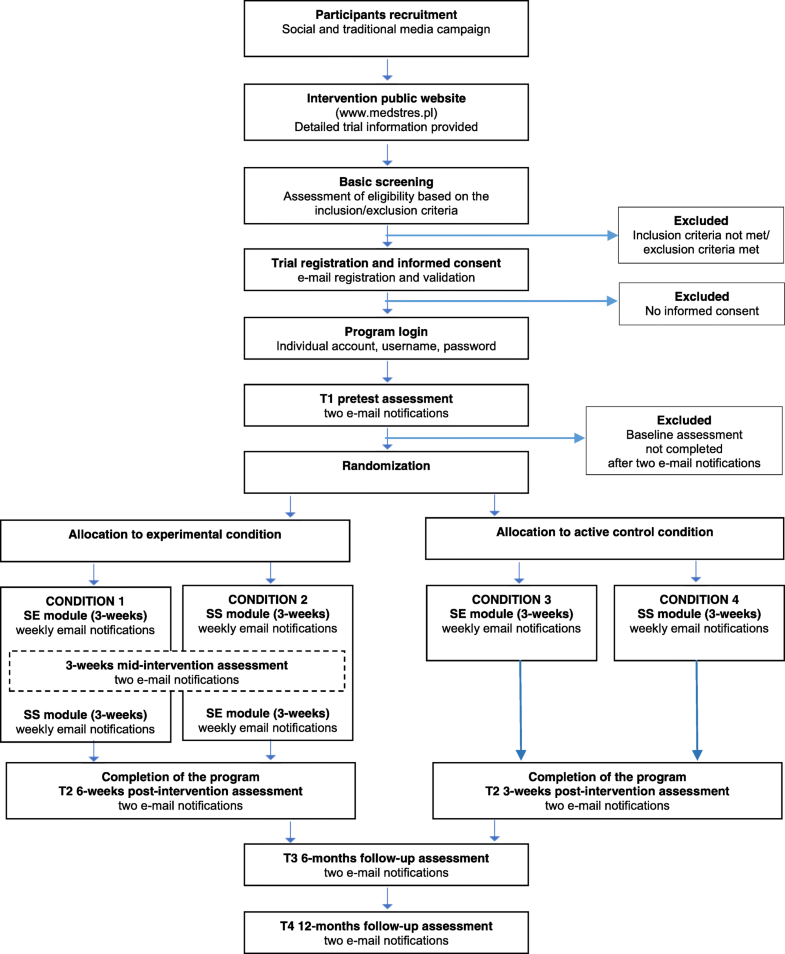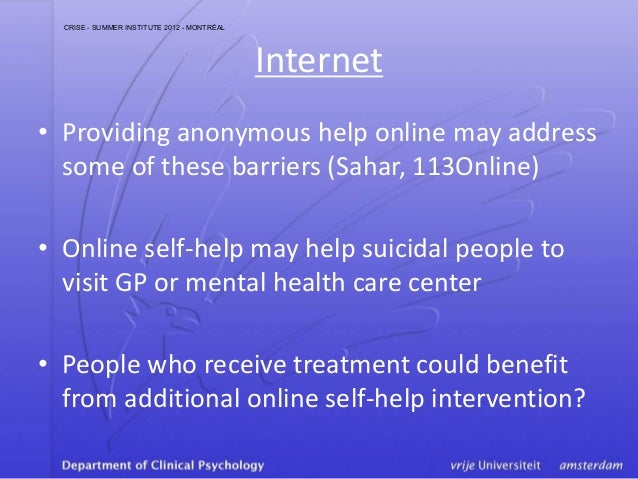
Anonymised email addresses were used to match baseline- and post-measures and ensure participants did not complete the study twice. Consent was acknowledged by completion of the baseline measures. To take part, participants were provided with web links and passwords to access the study. Participants were self-selected NHS keyworkers, both clinical and non-clinical, recruited through electronic advertisement to clinical departments across UHB and through the circulation of a web-based and paper flyer to staff forums and notice boards across the Trust. The approximate time required for a participant to complete the measures and the training was estimated at 45 min. The training was hosted on the MedTech website and made available to participants via a web link. The study was administered by The NIHR Trauma Management MedTech Co-operative based at University Hospitals Birmingham NHS Foundation Trust (UHB) and involved progressing through three distinct stages: baseline measures, web-based resilience training, and post-training measures. We hypothesized that the training would result in an increase in perceived knowledge of both stress and resilience. The study also sought to assess the impact of this training programme on keyworkers’ knowledge of stress and resilience. We hypothesized that the training would be both acceptable and perceived as useable. The aim of this formative usability study was to assess the acceptability and user perceptions of a web-based resilience training programme created for NHS keyworkers. This medium has the potential to offer training in resilience to large numbers of people whilst overcoming barriers such as stigma, time, and acceptability, and can be integrated easily into a wider organisational wellbeing strategy. Indeed, digital resilience training has been found to benefit other groups such as students and first responders (Galante et al., 2018 Heyen et al., 2021 Rose et al., 2013). However, at the time of writing, no studies of a web-based resilience training aimed specifically at NHS keyworkers were identified.
#EFFICACY ON AN UMGUIDED INTERNET BASEX HOW TO#
When considering how to make resilience training readily available to large numbers of busy staff, such as those working in NHS services, it is important to consider novel approaches. Web-based training, including mobile apps, has seen a rise in popularity for both health and mental wellbeing (Bakker et al., 2016 Bennion et al., 2019). The consequences of such improvements are that staff are better able to adapt to pressures and demands in the workplace and across all areas of their lives (Helmreich et al., 2017).


Resilience is a dynamic process that can be learned, leading to improvements in mental health and wellbeing, improved social support, self-efficacy, and coping. Resilience can be defined as ‘the role of mental processes and behaviour in promoting personal assets and protecting an individual from the potential negative effect of stressors’ (Fletcher & Sarkar, 2012). Resilience can be viewed as a set of key skills or personal characteristics that allow improved coping and adaptation through challenge or threat. These stressors have been exacerbated by the COVID-19 pandemic, highlighting the need for NHS Employers to support staff to build resilience to remain healthy, both physically and mentally, and to ensure job retention (Yılmaz, 2017).

Providing support to staff in a structured manner is a requirement of the NHS Constitution. Lessons learned from the COVID-19 pandemic, along with an understanding of how previous pandemics and disasters have affected healthcare systems, have highlighted the need for greater focus on support and resilience in the nursing workforce (Duncan, 2020). Resilience is important for all individuals to cope with normal daily life stressors and is particularly important for NHS staff who are often working in highly stressful situations. These figures are typically higher for staff working in healthcare settings. Emerging research on the impact of the COVID-19 pandemic on health workers’ mental health shows increases in mental health problems and psychological distress (Garciá-Fernández et al., 2020 Spoorthy, 2020), along with low levels of resilience (Mosheva et al., 2020 Roberts et al., 2021). In the UK, 12.8 million working days were lost due to work-related stress during the period 2018/2019 (Health & Safety Executive, 2020) with just over 0.6 million workers suffering from work-related stress, anxiety, or depression.


 0 kommentar(er)
0 kommentar(er)
